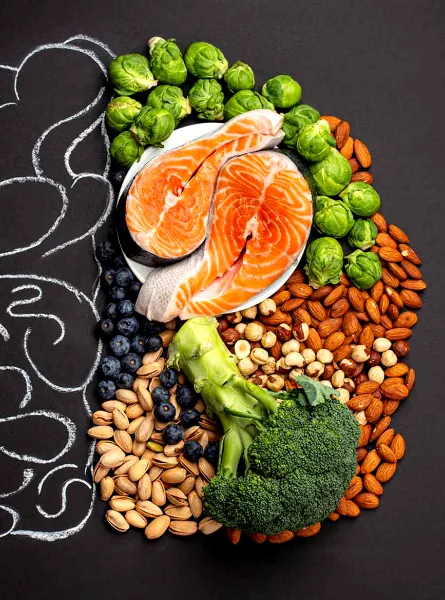
Our circadian cycle, or biological clock, signals the optimal times to wake up, eat, be active, and rest. When this natural rhythm is disrupted, such as by night shifts or changes in our eating habits, our health can be impacted.
The Central Role of the Circadian Cycle
Our circadian cycle regulates vital functions such as body temperature, hunger, digestion, and our energy levels. It influences the secretion of key hormones like ghrelin, which stimulates appetite, and leptin, which helps us feel full. A misalignment of this rhythm can lead to sleep disorders, weight gain, and other health issues (1).
Chrononutrition, an emerging science, examines how eating in alignment with our biological clock can optimize our health (2).
Challenge for Night Shift Workers
Night shift workers face a particular challenge, as their schedule goes against their body's natural cycle. This disruption can signal the body it's time to be active when it should be resting. As a result, they may get into the habit of eating during times when the body would normally be fasting, using its energy reserves. This includes sleep hours or periods between meals. Eating at these times can lead to an increase in overall caloric intake and potentially contribute to weight gain (3-4).
The Influence of Diet on the Circadian Cycle
Diet plays a crucial role in regulating our internal clock. Heavy or sugar-rich foods consumed at night can disrupt sleep and promote fat storage. Conversely, balanced meals can promote better sleep and healthy weight management, even for those working night shifts (5).
Practical Tips for Aligning Diet and Circadian Cycle
- Find Your Rhythm: Try to eat at regular times to help your body adapt to your schedule. To ensure you always have meals ready in advance, explore meal prep.
- Choose Nourishing Foods: Opt for whole foods, rich in fiber, protein, and healthy fats, to maintain your energy and satiety.
- Limit Stimulants: Reduce your caffeine intake and avoid heavy meals and energy drinks that can disrupt your sleep.
- Expose Yourself to Natural Light: Try to get exposure to natural light during your free time to help adjust your internal clock.
- Eat Your Largest Meals Early in the Day: This can help with better weight management and a more efficient metabolism (2).
Facing Challenges with a Registered Dietitian
Aligning our diet with our circadian cycle is a pathway to optimizing our health. This is especially true for night shift workers, who face unique challenges related to their reversed lifestyle. Adopting a mindful approach to diet can help minimize the negative impacts of night work and support a healthy circadian cycle.
At TeamNutrition, we are dedicated to helping you overcome these challenges. Together, we will develop a personalized nutrition plan, respecting your unique rhythms and supporting your overall health. Contact us today to schedule an appointment with a registered dietitian nutritionist!
References
- Scheer, F. A. J. L., Hilton, M. F., Mantzoros, C. S., & Shea, S. A. (2009). Adverse metabolic and cardiovascular consequences of circadian misalignment. Proceedings of the National Academy of Sciences, 106(11), 4453-4458.
- Jakubowicz, D., Barnea, M., Wainstein, J., & Froy, O. (2013). High caloric intake at breakfast vs. dinner differentially influences weight loss of overweight and obese women. Obesity, 21(12), 2504-2512.
- Hatori, M., Vollmers, C., Zarrinpar, A., Ditacchio, L., Bushong, E. A., Gill, S., ... & Panda, S. (2012). Time-restricted feeding without reducing caloric intake prevents metabolic diseases in mice fed a high-fat diet. Cell Metabolism, 15(6), 848-860.
- Azmi, N. A. S. M., Juliana, N., Teng, N. I. M. F., Azmani, S., Das, S., & Effendy, N. M. (2020). Consequences of Circadian Disruption in Shift Workers on Chrononutrition and their Psychosocial Well-Being. International Journal Of Environmental Research And Public Health, 17(6), 2043. https://doi.org/10.3390/ijerph17062043
- Kinsey, A. W., & Ormsbee, M. J. (2015). The health impact of nighttime eating: Old and new perspectives. Nutrients, 7(4), 2648-2662.





